| Listing 1 - 10 of 11 | << page >> |
Sort by
|
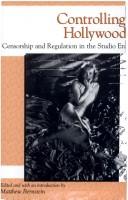
ISBN: 0485300923 Year: 2000 Publisher: London : Athlone,
Abstract | Keywords | Export | Availability | Bookmark
 Loading...
Loading...Choose an application
- Reference Manager
- EndNote
- RefWorks (Direct export to RefWorks)
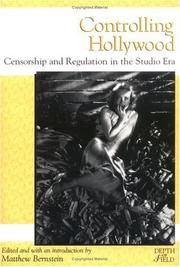
ISBN: 0813527074 0813527066 Year: 1999 Publisher: New Brunswick, N.J. Rutgers University Press
Abstract | Keywords | Export | Availability | Bookmark
 Loading...
Loading...Choose an application
- Reference Manager
- EndNote
- RefWorks (Direct export to RefWorks)
Book
ISBN: 0826365051 Year: 2023 Publisher: Albuquerque, New Mexico : University of New Mexico,
Abstract | Keywords | Export | Availability | Bookmark
 Loading...
Loading...Choose an application
- Reference Manager
- EndNote
- RefWorks (Direct export to RefWorks)
Paints the Old West in all its terrible glory, where desperadoes tangle with crooked detectives, bloodthirsty posses, and sultry seductresses. Throughout it all, the protagonist keeps up a breakneck speed, committing hundreds of crimes before his love for a treacherous woman and his own violent nature lead him to a fitting climax.
Criminals --- History. --- Flinn, Charley, --- United States --- History
Book
ISBN: 9780472071036 9780472051038 Year: 2010 Volume: *2 Publisher: Ann Arbor University of Michigan Press
Abstract | Keywords | Export | Availability | Bookmark
 Loading...
Loading...Choose an application
- Reference Manager
- EndNote
- RefWorks (Direct export to RefWorks)
Moore, Michael --- Motion picture producers and directors --- Documentary films --- Motion pictures --- Producteurs et réalisateurs de cinéma --- Documentaires --- Cinéma --- Political activity --- Political aspects --- Activité politique --- Aspect politique --- Moore, Michael, --- 791.43 <09> --- 929 --- Filmgeschiedenis. Filmhistorie --- Biografie. Genealogie. Heraldiek --- 929 Biografie. Genealogie. Heraldiek --- 791.43 <09> Filmgeschiedenis. Filmhistorie --- Producteurs et réalisateurs de cinéma --- Cinéma --- Activité politique --- 929 Biography. Genealogy. Heraldry --- Biography. Genealogy. Heraldry --- Directors, Motion picture --- Film directors --- Film producers --- Filmmakers --- Motion picture directors --- Moviemakers --- Moving-picture producers and directors --- Producers, Motion picture --- Documentaries, Motion picture --- Documentary videos --- Factual films --- Motion picture documentaries --- Moving-pictures, Documentary --- Documentary mass media --- Nonfiction films --- Actualities (Motion pictures) --- Political aspects&delete& --- History and criticism --- מור, מייקל, --- Criticism and interpretation. --- Criticism and interpretation --- United States --- Persons
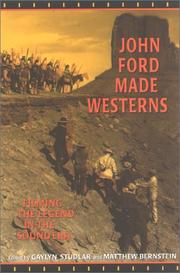
ISBN: 9786612066016 1282066013 0253108543 9780253108548 9781282066014 0253337984 9780253337986 0253214149 9780253214140 6612066016 Year: 2001 Publisher: Bloomington Indiana University Press
Abstract | Keywords | Export | Availability | Bookmark
 Loading...
Loading...Choose an application
- Reference Manager
- EndNote
- RefWorks (Direct export to RefWorks)
Fresh perspectives on some of the most influential films of John Ford.The Western is arguably the most popular and enduring form in cinematic history, and the acknowledged master of that genre was John Ford. His Westerns, including The Searchers, Stagecoach, and The Man Who Shot Liberty Valance, have had an enormous influence on contemporary U.S. films, from Star Wars to Taxi Driver.In John Ford Made Westerns, nine major essays by prominent scholars of Hollywood film situate the sound-era
Ford, John. --- Film --- Music, Dance, Drama & Film --- Westerns --- Histoire et critique. --- Ford, John, --- Critique et interprétation --- Filmographie --- O'Feeney, Sean, --- O'Fearna, Sean Aloysius, --- O'Fienne, Sean Aloysius, --- Feeney, John Martin, --- Ford, Jack, --- Ford, John --- O'Feeney, Sean --- O'Fearna, Sean Aloysius --- O'Fienne, Sean Aloysius --- Feeney, John Martin --- Ford, Jack
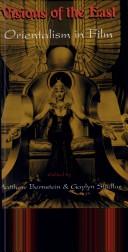
ISBN: 1860643051 Year: 1997 Publisher: London : Tauris,
Abstract | Keywords | Export | Availability | Bookmark
 Loading...
Loading...Choose an application
- Reference Manager
- EndNote
- RefWorks (Direct export to RefWorks)
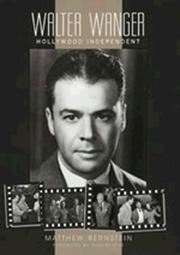
ISBN: 0520081277 Year: 1994 Publisher: Berkeley (Calif.) University of California Press
Abstract | Keywords | Export | Availability | Bookmark
 Loading...
Loading...Choose an application
- Reference Manager
- EndNote
- RefWorks (Direct export to RefWorks)

ISBN: 0813522951 0813522943 Year: 1997 Publisher: New Brunswick, NJ : Rutgers University Press,
Abstract | Keywords | Export | Availability | Bookmark
 Loading...
Loading...Choose an application
- Reference Manager
- EndNote
- RefWorks (Direct export to RefWorks)
Book
ISBN: 0820351148 9780820351148 9780820351131 082035113X Year: 2017 Publisher: Athens University of Georgia Press
Abstract | Keywords | Export | Availability | Bookmark
 Loading...
Loading...Choose an application
- Reference Manager
- EndNote
- RefWorks (Direct export to RefWorks)
During more than two decades (1932-1954), William Faulkner worked on approximately fifty screenplays for studios, including MGM, 20th Century-Fox, and Warner Bros., and was credited on such classic films as The Big Sleep and To Have and Have Not. The scripts that Faulkner wrote for film-and, later on, television-constitute an extensive and, until now, thoroughly underexplored archival source. Stefan Solomon not only analyzes the majority of these scripts but compares them to the novels and short stories Faulkner was writing at the same time. Solomon's aim is to reconcile two aspects of a career that were not as distinct as they first might seem: Faulkner as a screenwriter and Faulkner as a high modernist, Nobel Prize-winning author. Faulkner's Hollywood sojourns took place during a period roughly bounded by the publication of Light in August (1932) and A Fable (1954) and that also saw the publication of Absalom, Absalom!; Go Down, Moses; and Intruder in the Dust. As Solomon shows Faulkner attuning himself to the idiosyncrasies of the screenwriting process (a craft he never favored or admired), he offers insights into Faulkner's compositional practice, thematic preoccupations, and understanding of both classic cinema and the emerging medium of television. In the midst of this complex exchange of media and genres, much of Faulkner's fiction of the 1930s and 1940s was directly influenced by his protracted engagement with the film industry. Solomon helps us to see a corpus integrating two vastly different modes of writing and a restless author, sensitive to the different demands of each. Faulkner was never simply the southern novelist or the West Coast "hack writer" but always both at once. Solomon's study shows that Faulkner's screenplays are crucial in any consideration of his far more esteemed fiction-and that the two forms of writing are more porous and intertwined than the author himself would have us believe. Here is a major American writer seen in a remarkably new way.
Faulkner, William, --- Radio and television plays. --- Motion picture plays.
Digital

ISBN: 9781474406567 9781474406550 Year: 2015 Publisher: Edinburgh Edinburgh University Press
Abstract | Keywords | Export | Availability | Bookmark
 Loading...
Loading...Choose an application
- Reference Manager
- EndNote
- RefWorks (Direct export to RefWorks)
| Listing 1 - 10 of 11 | << page >> |
Sort by
|

 Search
Search Feedback
Feedback About UniCat
About UniCat  Help
Help News
News